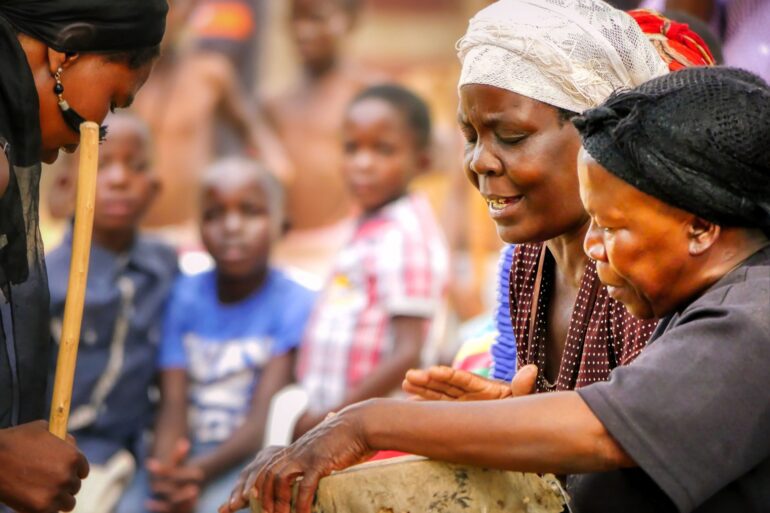TL;DR:
- A group of African scientists is developing advanced AI tools for African languages.
- Widely used AI technologies like ChatGPT and Siri are inaccessible to many due to language barriers.
- The initiative aims for inclusivity and representation in language technology.
- Language tools rely on natural language processing; scarcity of data hinders African languages.
- Key considerations include the cultural value of indigenous languages and supporting content creation.
- Collaboration between linguistics and computer science is pivotal for innovative solutions.
- Ethical practices and community involvement are emphasized in data processes.
- The study lays the groundwork for a range of language tools, from translation to content moderation.
- Preservation of indigenous African languages is a key aspect.
- The vision is to provide quality of life and information access for all, regardless of language fluency.
Main AI News:
In the heart of Africa, a dedicated team of scientists is spearheading the development of cutting-edge artificial intelligence tools tailored exclusively for African languages. The initiative aims to bridge a significant gap in language technology, as prevalent AI innovations like text-generating ChatGPT and voice-activated Siri remain out of reach for billions who are not conversant in mainstream languages such as English, French, and Spanish. This imperative for heightened inclusivity and representation has ignited a movement toward language technology parity.
Masakhane Research Foundation’s Kathleen Siminyu expounds on the issue, emphasizing that existing AI technologies often sideline African languages. She asserts that the evolution of language technology must be inherently inclusive and mindful of diversity from its inception, rather than being retrofitted as an afterthought. “Inclusion and representation in the advancement of language technology is not a patch you put at the end — it’s something you think about upfront,” explains Ms. Siminyu.
The Essence of AI Language Mastery
Central to this drive are AI tools founded on the principles of natural language processing, a field that empowers computers to comprehend human languages. These tools learn languages through training, discerning patterns within spoken and written data. However, their effectiveness wanes when faced with languages possessing scant data, as is common with African languages.
To bridge this gap, the research team embarked on a comprehensive exploration. They identified key stakeholders pivotal in crafting African language tools, delving into their experiences, motivations, challenges, and areas of focus. This diverse group encompasses content creators like writers and editors, alongside linguists, software engineers, and entrepreneurs who construct the foundational infrastructure of language tools.
Deciphering Design Considerations
Dialogues with these essential contributors unveiled four critical considerations underpinning the design of African language tools. The first revolves around Africa’s multilingual society, wherein the reverberations of colonization underscore the cultural and societal significance of indigenous languages. These languages play a pivotal role in education systems, political landscapes, and economic domains, necessitating a thoughtful approach to technological advancements that uphold their value.
The second consideration entails bolstering African content generation. This involves constructing fundamental tools like dictionaries, spell checkers, and language-specific keyboards. Furthermore, it involves dismantling financial and administrative barriers, enabling the translation of government communications into multiple national languages, encompassing various African tongues.
A Synergy of Disciplines
Collaboration between linguistics and computer science emerges as the third pivotal aspect. This synergy, where both domains intersect, holds the potential for human-centered innovative breakthroughs. A holistic approach, marked by adherence to ethical practices and a commitment to community involvement across data collection and usage processes, is deemed indispensable.
A Path Forward
Addressing potential barriers to technology access is the forthcoming mission for the research team. Their study lays the foundation for a spectrum of language tools, spanning translation services to misinformation-detecting content moderators. Importantly, the findings are poised to contribute to the preservation of indigenous African languages, safeguarding their invaluable cultural legacy.
Siminyu’s Vision
Ms. Siminyu envisions a world where Africans enjoy a quality of life and access to information akin to those fluent in global languages. Her sentiments reflect the growing sentiment among organizations dedicated to this cause. The study’s results hold the power to harmonize efforts, guiding investments in impactful language tools. In essence, it outlines a blueprint for both temporal and financial allocations, cementing the course toward a future where language technology is a bridge to empowerment and unity.
Conclusion:
The advancement of AI tools for African languages represents a significant stride towards greater inclusivity and representation in the global market. By addressing linguistic barriers, this initiative opens doors for technology adoption and economic growth across diverse linguistic landscapes. It reflects a broader trend of AI becoming more tailored to regional needs, marking a shift in market dynamics and expanding opportunities for technological engagement.

